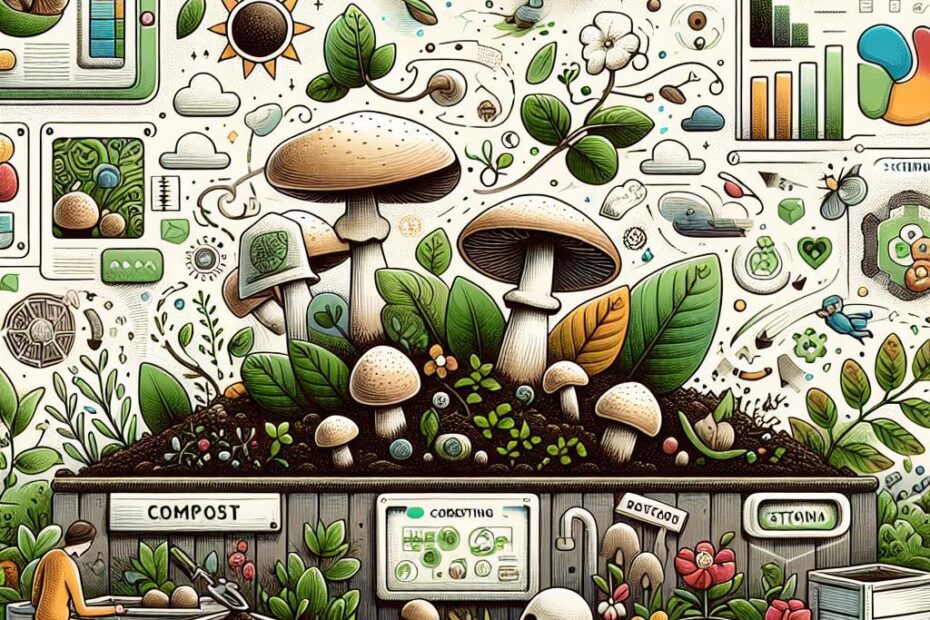Is Mushroom Compost Good for Gardens?
When it comes to gardening, one of the most important factors for success is the quality of the soil you use. While traditional compost is often the go-to choice for many gardeners, mushroom compost has been gaining popularity in recent years for its unique benefits. In this article, we will explore whether mushroom compost is good for gardens and why you should consider using it in your own garden.
What is Mushroom Compost?
Mushroom compost, also known as mushroom soil or mushroom manure, is a type of organic material that is produced as a byproduct of the mushroom farming industry. It is made up of a blend of various organic materials such as straw, hay, corn cobs, horse manure, poultry litter, and other agricultural waste products. These ingredients are mixed together and then used as a growing medium for cultivating mushrooms.
Is Mushroom Compost Good for Gardens?
Yes, mushroom compost is an excellent choice for gardens for a variety of reasons. Here are some of the key benefits of using mushroom compost in your garden:
1. Nutrient-rich
Mushroom compost is rich in nutrients such as nitrogen, phosphorus, and potassium, which are essential for plant growth. These nutrients can help improve soil fertility and promote healthy plant growth.
2. Improves soil structure
One of the main benefits of mushroom compost is its ability to improve soil structure. It helps to increase soil porosity, promote drainage, and enhance water retention, which are all important factors for plant growth.
3. Suppresses diseases
Studies have shown that mushroom compost has natural disease-suppressing properties, which can help protect your plants from common diseases and pests.
4. Environmentally friendly
Using mushroom compost in your garden is a sustainable and environmentally friendly choice. It helps reduce waste by using agricultural byproducts that would otherwise be discarded.
How to Use Mushroom Compost in Your Garden
When using mushroom compost in your garden, here are some practical tips to keep in mind:
- Before planting, mix the mushroom compost with existing soil in a ratio of 1:1.
- Avoid using pure mushroom compost as it can be too rich for some plants.
- Apply a 2-inch layer of mushroom compost on the soil surface and gently work it into the soil.
- Water the mushroom compost thoroughly after application to help it integrate with the soil.
Case Study
Let’s take a look at a real-life example of how mushroom compost has benefited a garden:
| Case Study | Results |
|---|---|
| Vegetable Garden | Increased yield and improved soil quality after using mushroom compost as a soil amendment. |
Conclusion
In conclusion, mushroom compost is an excellent choice for gardens due to its nutrient-rich content, ability to improve soil structure, disease-suppressing properties, and environmentally friendly nature. By using mushroom compost in your garden, you can help promote healthy plant growth and improve overall soil health. Consider incorporating mushroom compost into your gardening routine for optimal results.
